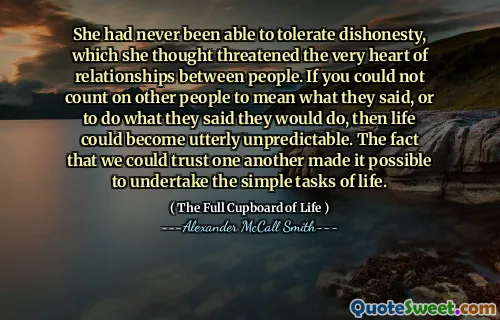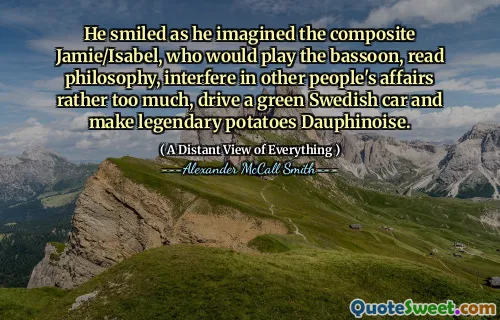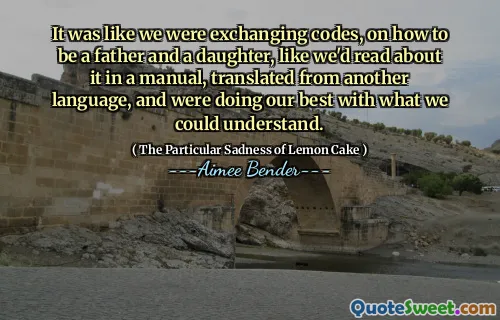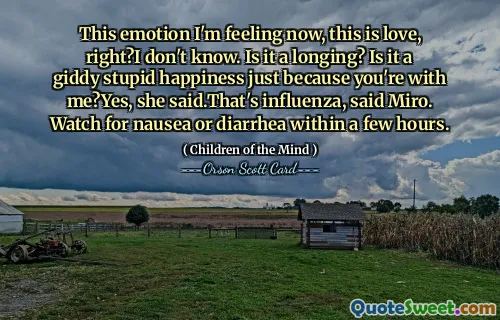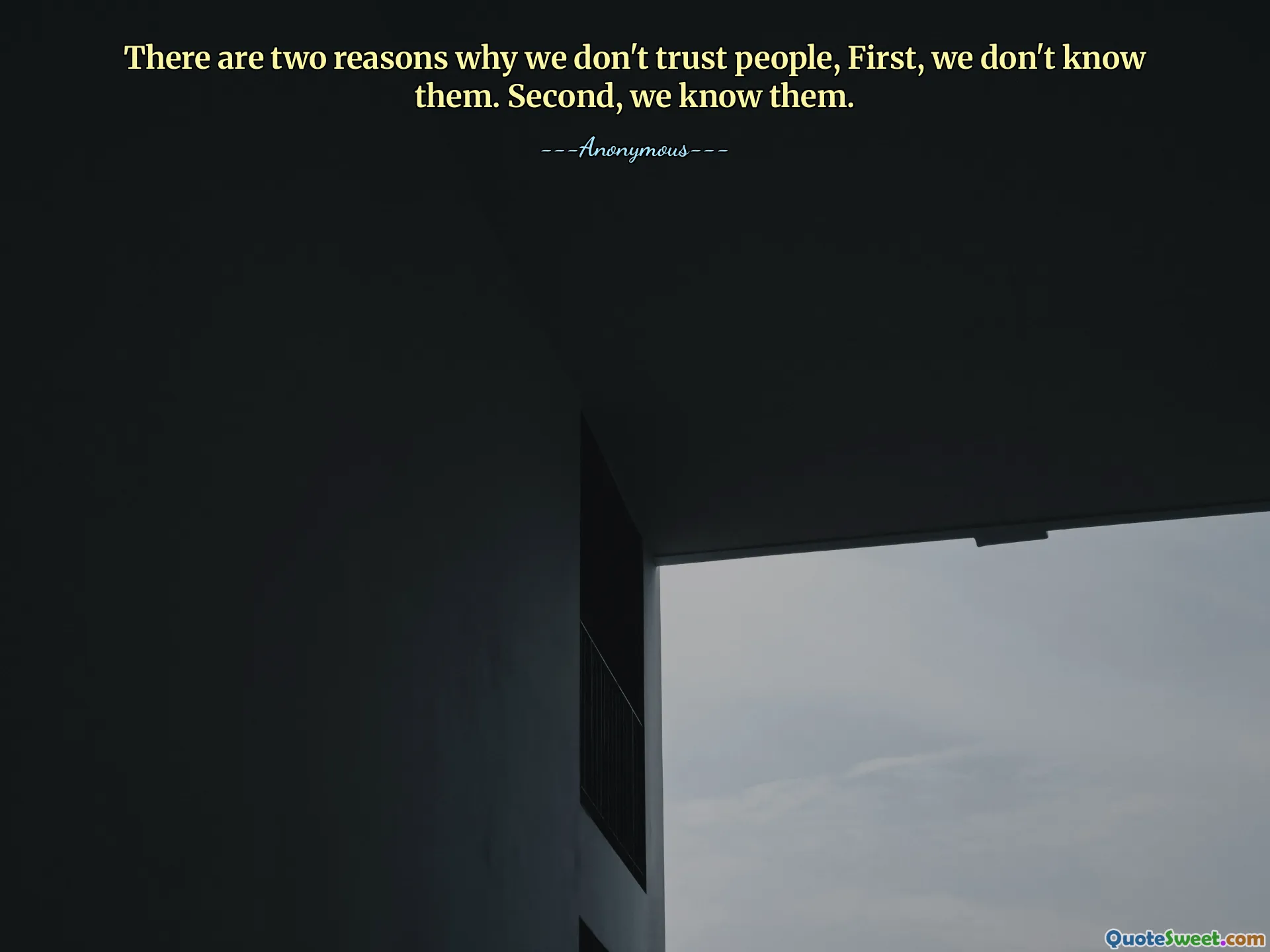
There are two reasons why we don't trust people, First, we don't know them. Second, we know them.
Trust is a fundamental aspect of human relationships that shapes how we interact and collaborate within communities. The quote highlights a paradox: our trust in others is limited both by unfamiliarity and by familiarity. On one hand, when we don't know someone, we hesitate to trust, fearing potential betrayal or harm due to a lack of understanding. This suggests that trust often requires knowledge and familiarity; without it, skepticism prevails. On the other hand, when we do know someone well, our trust can be broken by the awareness of their flaws, mistakes, or previous betrayals. This second reason emphasizes that knowing someone doesn't guarantee trust but can instead lead to disillusionment or cautiousness. The quote invites us to reflect on the complex nature of trust, which is not simply a binary or straightforward emotion but a dynamic blend influenced by our perceptions, experiences, and sometimes our fears. It also underscores the importance of building genuine understanding while acknowledging that complete trust might always carry inherent risks. As humans, the journey to develop trust is ongoing and nuanced, requiring both openness and discernment. We must find a balance between giving others the benefit of the doubt and protecting ourselves from potential harm. Ultimately, trusting others involves vulnerability, which is often accompanied by both hope and fear. It's a universal challenge that continues to shape our social interactions and personal growth.








